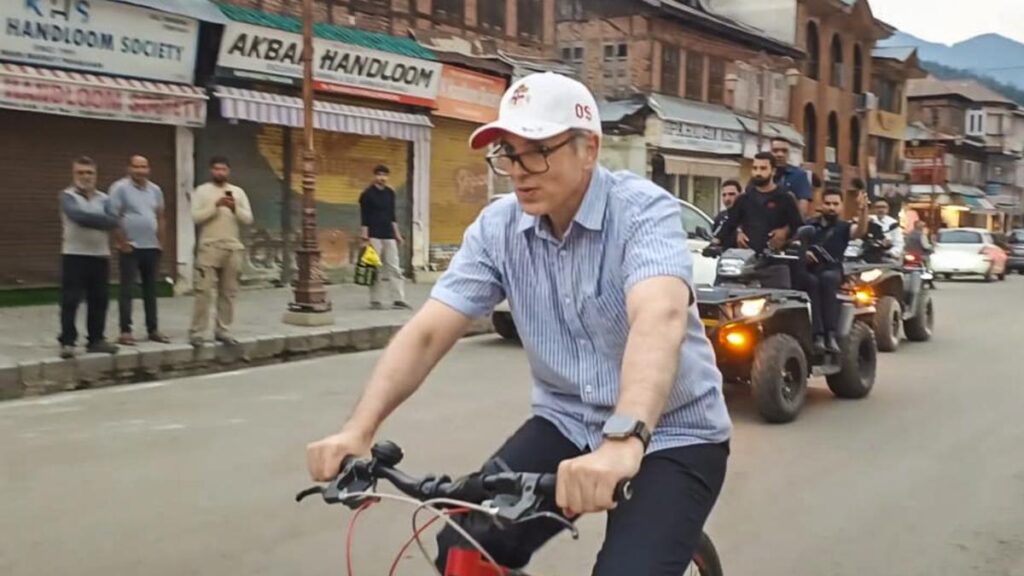J&K CM Pushes for Security and Trust to Bring Visitors Back to the Valley
Srinagar: Jammu and Kashmir Chief Minister Omar Abdullah chaired a high-level meeting in Gulmarg on May 28, 2025, at 12 noon to boost tourism following the devastating April 22 Pahalgam terror attack that killed 26 people, mostly tourists. The meeting, attended by top officials including the Inspector General of Police, Kashmir, and the Senior Superintendent of Police, Baramulla, aimed to restore confidence among visitors and revive the region’s tourism sector.
A Strategic Move to Rebuild Trust
This marks the second consecutive day of symbolic meetings in tourist hotspots, following a Cabinet session in Pahalgam on May 27. Abdullah’s decision to hold these meetings outside Srinagar’s Civil Secretariat is a deliberate effort to signal safety and normalcy. “The aim is to alleviate fear and reinforce a sense of security,” officials stated. The tourism sector, a lifeline for J&K’s economy, has seen a 90% drop in bookings since the attack, severely impacting local livelihoods.
Engaging Stakeholders for Recovery
The Gulmarg meeting included tour and travel operators from across India, hosted by the J&K government to encourage tourism. Abdullah has emphasized treating tourism as a “conflict-neutral activity,” a stance he reiterated after the Pahalgam meeting. He also proposed hosting PSU conferences and parliamentary meetings in Kashmir during a recent NITI Aayog session, aiming to draw national attention and rebuild trust. Posts on X reflect mixed sentiment, with some praising the initiative as a bold step, while others question if symbolic gestures alone can address deeper security concerns.
Challenges and Broader Context
The Pahalgam attack, followed by Operation Sindoor—a military response targeting terror camps across the border—has heightened tensions in the region. Gulmarg, near the Line of Control, was affected by the subsequent Indo-Pakistan skirmishes from May 7-10. Despite a recent ceasefire, 48 tourist destinations, including parks in Pahalgam, remain closed. The Travel Agents Association of Kashmir has urged reopening safe trekking trails to signal normalcy, but security audits are pending. With the Amarnath Yatra approaching in July, Abdullah stressed the need for a balanced approach to ensure both pilgrimage and tourism can coexist safely.
A Call for Resilience
Abdullah’s actions underscore a broader strategy to insulate tourism from conflict. “We want the world to see J&K’s tourism as an economic activity, not a political tool,” he said in Pahalgam. As the government navigates this crisis, the success of these efforts will depend on sustained security measures and public cooperation, amidst a complex governance structure where security remains under the Centre’s control.


